SPEAK NO EVIL (2022)
A Danish family visits a Dutch family they met on a holiday, but what was supposed to be an idyllic weekend slowly starts to unravel ...
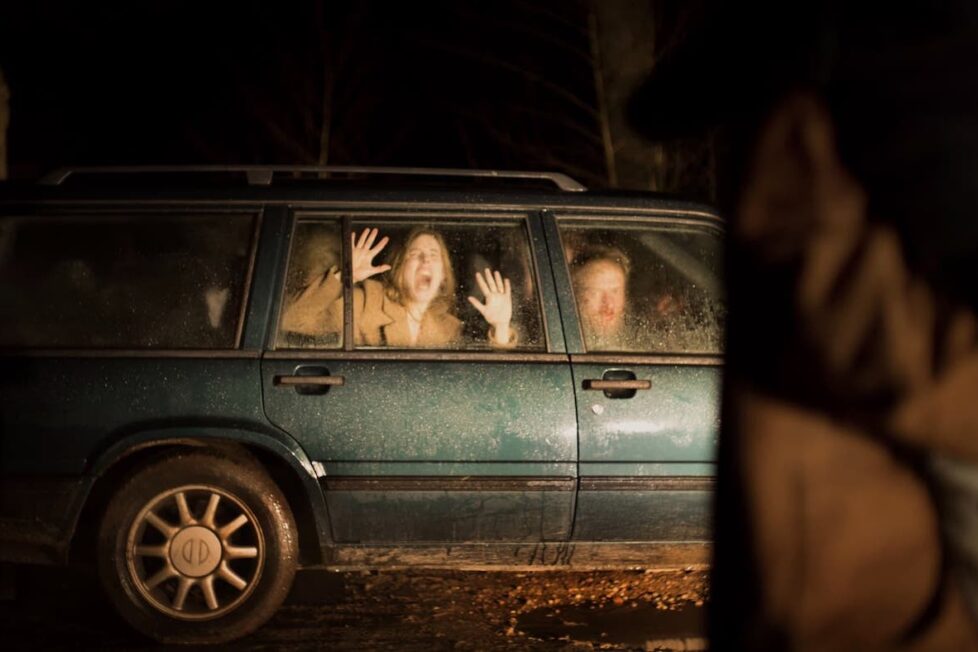
A Danish family visits a Dutch family they met on a holiday, but what was supposed to be an idyllic weekend slowly starts to unravel ...


The Danish concept of hygge can’t be translated into one single English word. It encompasses a feeling of contentment and well-being through enjoying the simple things in life. There’s nothing more hygge than the warm atmosphere experienced through sitting around with friends and family. Unfortunately, that feeling is absent in the latest psychological horror from Danish filmmaker Christian Tafdrup. Premiering at the 2022 Sundance Film Festival, Speak No Evil / Gæsterne is a harrowing exploration of social boundaries pushed to the absolute extreme.
Danish couple Bjørn (Morten Burian) and Louise (Sidsel Siem Koch) are on holiday in Tuscany with their young daughter Agnes (Liva Forsberg). While in Southern Europe, they become friends with a Dutch family of three: charismatic Patrick (Fedja van Huét) and Karin (Karina Smulders), vacationing with their son Abel (Marius Damslev). The two families enjoy each other’s company over fine cuisine and good conversations, but shortly after returning home, Bjørn and Louise receive a postcard from their new holiday friends inviting them to stay at their home in the Dutch countryside for a long weekend. Despite being relative strangers, they accept and travel to the Netherlands, but while the weekend initially appears to be a joyful continuation of their holiday spent together, it soon takes a sinister turn…
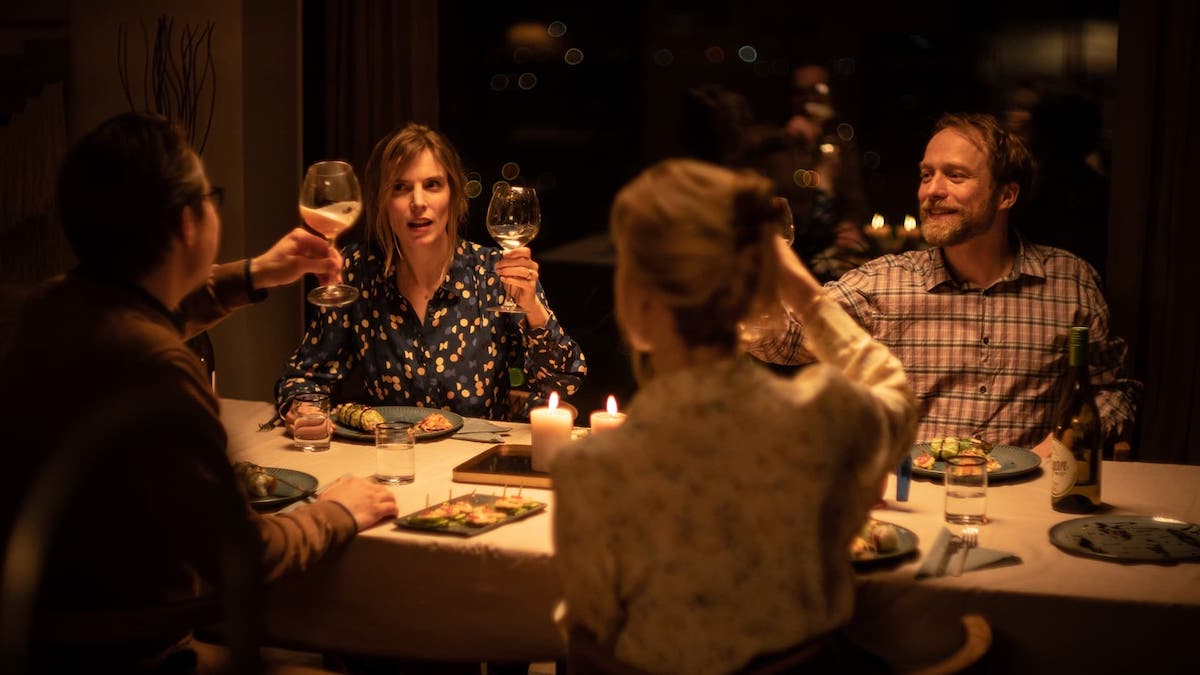
This oppressive nightmare is kept together thanks to an impressive ensemble. Speak No Evil is anchored by Fedja Van Huét’s (Character) incredibly unsettling performance as Patrick. He initially portrays his character as a naturally charming Dutchman who radiates nonchalant confidence. However, as the story progresses his charisma turns to spite. Huét effortlessly displays an erratic unpredictability that makes his character equally gregarious and menacing. Additionally, Morten Burian (Deadline) delivers a quiet but textured performance as anxious everyman Patrick. He loves his daughter and wife unconditionally but yearns to break free from his monotonous bourgeois lifestyle. The actor imbues the character with a vulnerability that’s surprisingly relatable. Behind Bjørn’s wonderfully expressive eyes is a man that’s emotionally unfulfilled and frightened of confrontation. Burian really excels when Bjørn discovers how wrong he’s been.
Considering writer-director Christian Tafdrup has never ventured into the horror genre before, he hides his inexperience well. During Speak No Evil’s introduction at Sundance Film Festival, the director explained he wanted to create “the most unpleasant viewing experience”. This is something he accomplished thanks to a consistent tone of fear and dread. Speak No Evil almost begins as a domestic drama before slowly developing into a psychological horror that examines the facade humans can create to achieve emotional manipulation. While borrowing elements from Michael Haneke’s Funny Games (1997) and David Moreau and Xavier Palud’s Ils / Them (2006), Tafdrup does an admiral job creating a claustrophobic atmosphere. The moment Bjørn and Louise enter the home of the previously charming holiday partners, the director meticulously layers several disturbing moments of unbearable discomfort into the narrative. Patrick serves meat for dinner knowing Louise is a pescatarian, whereas Louise prepares little more than a cushion for Agnes to sleep on. As Patrick’s behaviour veers from unchallenging to dangerously disconcerting, almost every interaction seethes with unspoken oppression. Tafdrup relishes the opportunity to play with the audience’s emotions, steadily ramping up the atmosphere before the climactic finale.
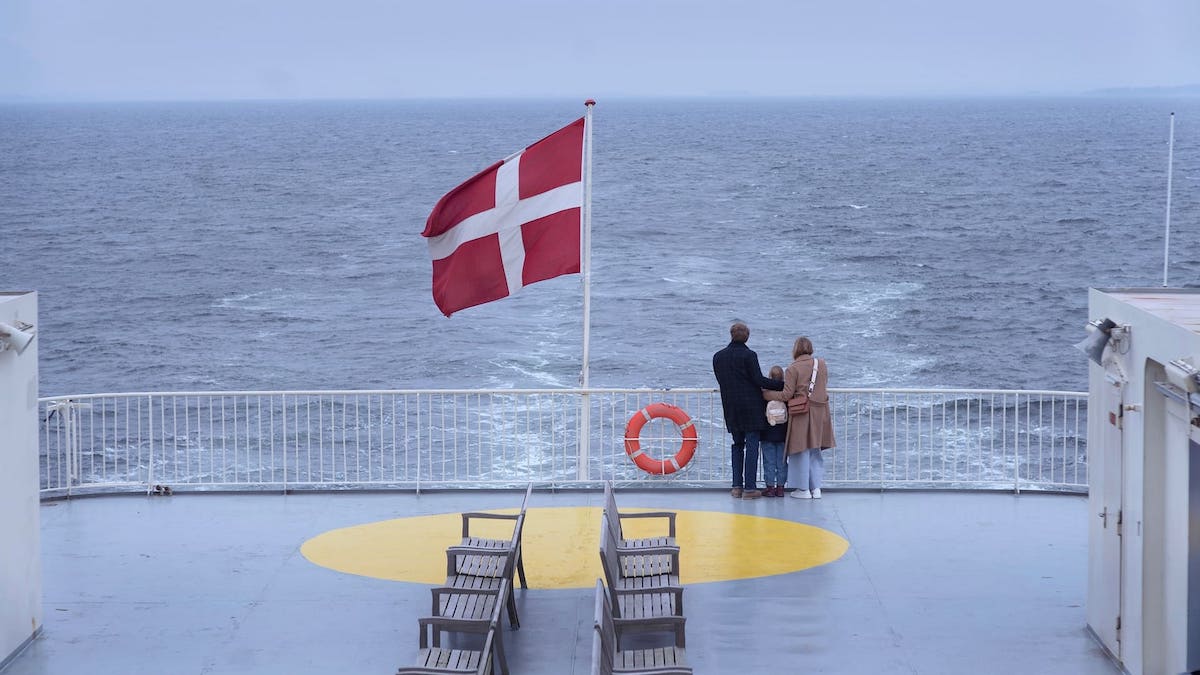
Despite the breathtakingly beautiful Tuscan landscapes, Erik Molberg Hansen’s (Gone) cinematography establishes the unsettling atmosphere from the get-go. Tafdrup finds unease in otherwise welcoming landscapes, embedding Bjørn and Louise’s stunning holiday apartment with ominous shadows. Hinting at the danger that awaits them, the lighting quickly becomes subdued when the Danish family visit Patrick and Karin. The claustrophobic compositions and shadows become more pronounced as the relations between the two become more complex and discordant. Additionally, Sune “Køter” Kølste’s (Ludo) foreboding score punctuates the narrative adding a sonic dissonance to the most tranquil moments. The threatening orchestral music is raised to an almost assaultive level as we look out onto the breathtaking Tuscan Valley. Moments of serenity and supposed normality including viable family dinners suddenly become insufferably tense. It intelligently hints toward an unseen menace lurking beneath the pleasant surroundings, while also heightening the simmering tensions developing between the two families.
The main reason Speak No Evil is such an effective horror is that it remains within the margins of reality. Oftentimes it’s the most relatable stories that traumatise audiences. Co-written alongside his brother Mads Tafdrup (A Horrible Woman), there’s a resonance within the screenpla that speaks universally. Anyone who’s ever succumbed to pressure during social situations or has reluctantly vocalised an objection will shudder in recognition. Tafdrup carefully scatters several clues throughout that indicate the malicious nature resting behind the Dutch family’s friendly facade. Patrick uses the bathroom while Louise is taking a shower, whereas Karin disciplines Agnes at the dinner table. It’s agonisingly relatable watching Bjørn and Louise politely overlook these minor inconveniences as cultural differences. However, little do they know that they are obvious signs of impending trouble. Unfortunately, their fear of confrontation eventually becomes their undoing as Patrick and Louise’s confrontational demeanour becomes something more pronounced.
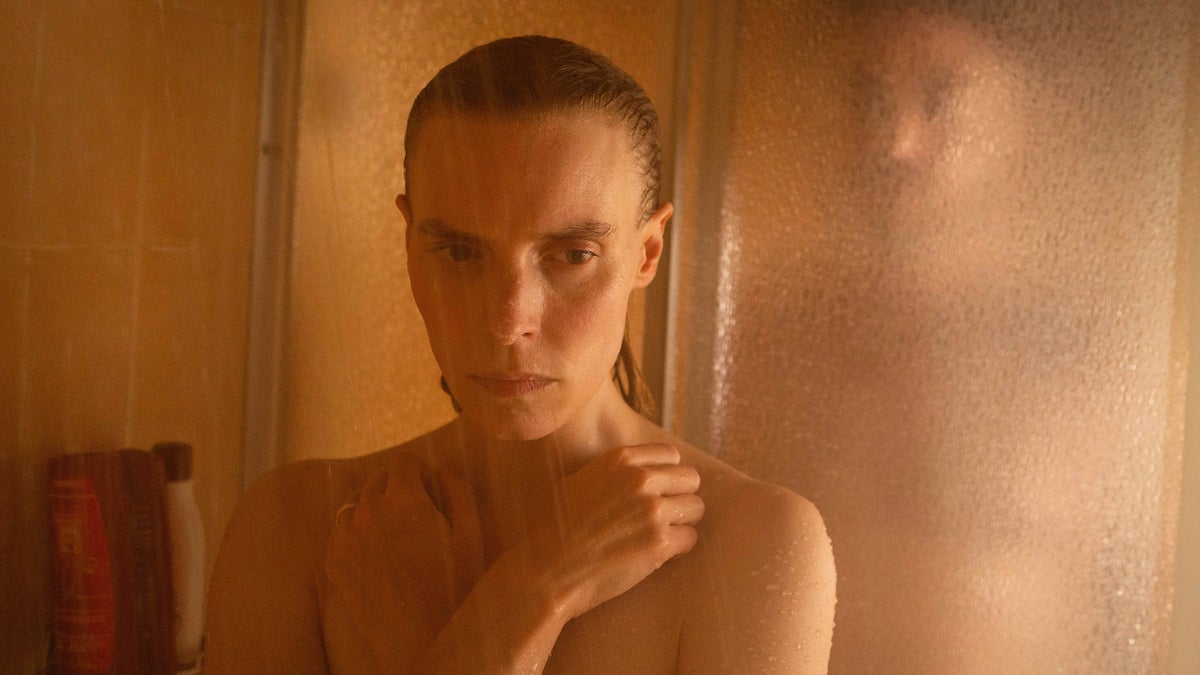
Speak No Evil may disappoint fans of more conventional horror due to its methodical pacing and dependence on atmospherics. Similar to Ari Aster’s Midsommar (2019), Tafdrup purposely refrains from displaying any graphic violence until the final moments. This deliberate pacing aligns perfectly with Patrick and Karin’s predatory behaviour. The psychological horror gradually works the audience’s nerves down to the bone until we’re left breathless with anticipation. Eventually, the story ventures to a place so casually depraved that it may leave some viewers outraged. Words cannot adequately convey the horrific chaos the director subjects his protagonist to during the finale. However, Tafdrup refuses to hide the inherent barbarism that some humans are capable of. He crafts an engrossing cautionary tale on the dangers of acquiescence that’ll continue to resonate once the credits roll.
Christian Tafdrup’s terrifying dissection of social conventions is a thought-provoking cautionary tale about the dangers of social conditioning. Although its deliberate pacing and enigmatic tone may be divisive amongst genre fans expecting routine jump scares and bloodshed. The director’s exercise in restraint creates a suffocating atmosphere throughout the 97-minute runtime. This balance of methodical pacing and foreboding tone slowly builds towards a climax that callously illustrates the banality of evil. Channelling the very best of Michael Haneke and Lars Von Trier (Antichrist), Speak No Evil will leave you speechless.
DENMARK • NETHERLANDS | 2022 | 97 MINUTES | 2:39:1| COLOUR | ENGLISH • DUTCH • DANISH

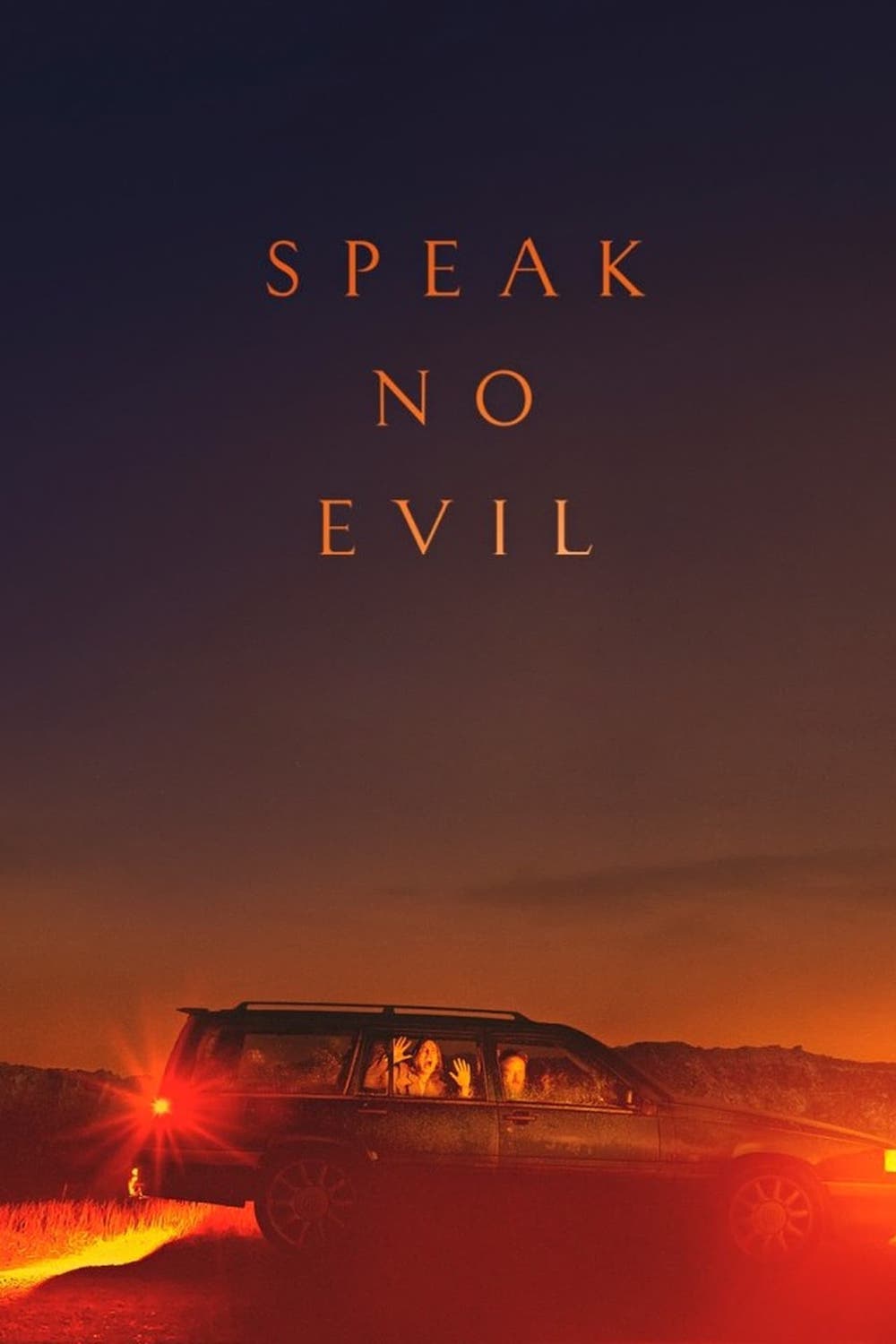
director: Christian Tafdrup.
writers: Christian Tafdrup & Mads Tafdrup.
starring: Morten Burian, Sidsel Siem Koch, Fedja van Huét & Karina Smulders.
